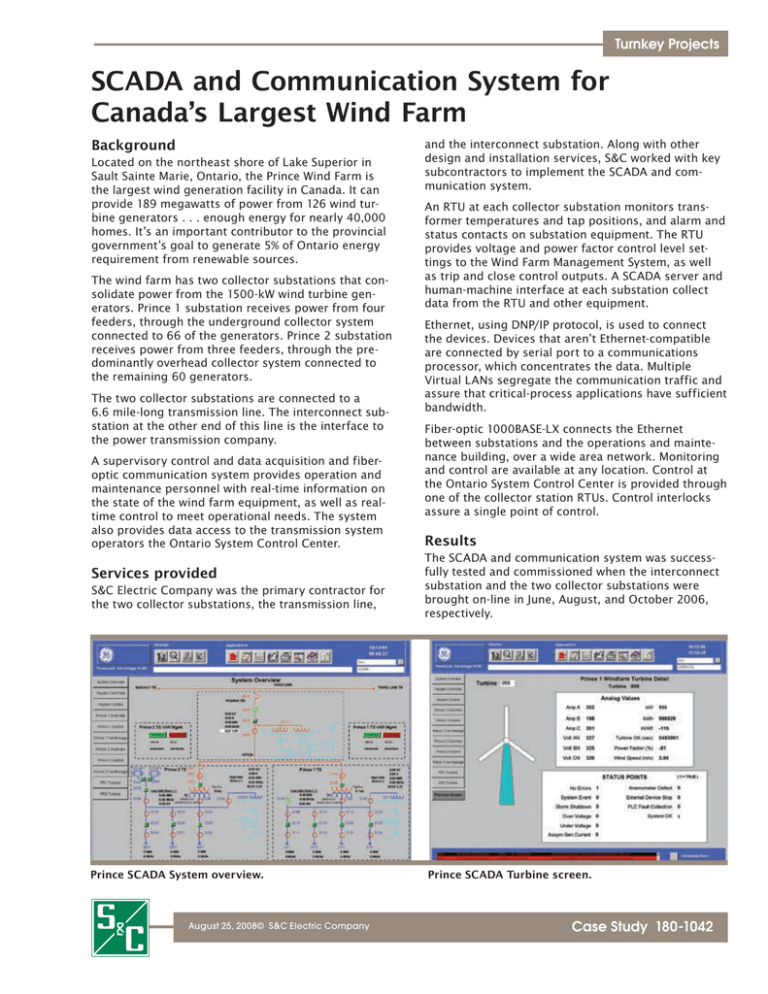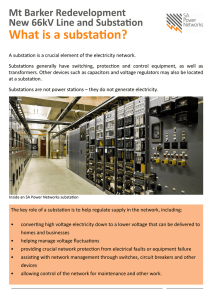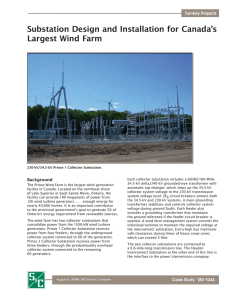SCADA and Communication System for Canada`s Largest Wind Farm
advertisement

Turnkey Projects SCADA and Communication System for Canada’s Largest Wind Farm Background Located on the northeast shore of Lake Superior in Sault Sainte Marie, Ontario, the Prince Wind Farm is the largest wind generation facility in Canada. It can provide 189 megawatts of power from 126 wind turbine generators . . . enough energy for nearly 40,000 homes. It’s an important contributor to the provincial government’s goal to generate 5% of Ontario energy requirement from renewable sources. The wind farm has two collector substations that consolidate power from the 1500-kW wind turbine generators. Prince 1 substation receives power from four feeders, through the underground collector system connected to 66 of the generators. Prince 2 substation receives power from three feeders, through the predominantly overhead collector system connected to the remaining 60 generators. The two collector substations are connected to a 6.6 mile-long transmission line. The interconnect substation at the other end of this line is the interface to the power transmission company. A supervisory control and data acquisition and fiberoptic communication system provides operation and maintenance personnel with real-time information on the state of the wind farm equipment, as well as realtime control to meet operational needs. The system also provides data access to the transmission system operators the Ontario System Control Center. Services provided S&C Electric Company was the primary contractor for the two collector substations, the transmission line, Prince SCADA System overview. August 25, 2008© S&C Electric Company and the interconnect substation. Along with other design and installation services, S&C worked with key subcontractors to implement the SCADA and communication system. An RTU at each collector substation monitors transformer temperatures and tap positions, and alarm and status contacts on substation equipment. The RTU provides voltage and power factor control level settings to the Wind Farm Management System, as well as trip and close control outputs. A SCADA server and human-machine interface at each substation collect data from the RTU and other equipment. Ethernet, using DNP/IP protocol, is used to connect the devices. Devices that aren’t Ethernet-compatible are connected by serial port to a communications processor, which concentrates the data. Multiple Virtual LANs segregate the communication traffic and assure that critical-process applications have sufficient bandwidth. Fiber-optic 1000BASE-LX connects the Ethernet between substations and the operations and maintenance building, over a wide area network. Monitoring and control are available at any location. Control at the Ontario System Control Center is provided through one of the collector station RTUs. Control interlocks assure a single point of control. Results The SCADA and communication system was successfully tested and commissioned when the interconnect substation and the two collector substations were brought on-line in June, August, and October 2006, respectively. Prince SCADA Turbine screen. April 11, 2005© Study S&C Electric Company Case 180-1042


